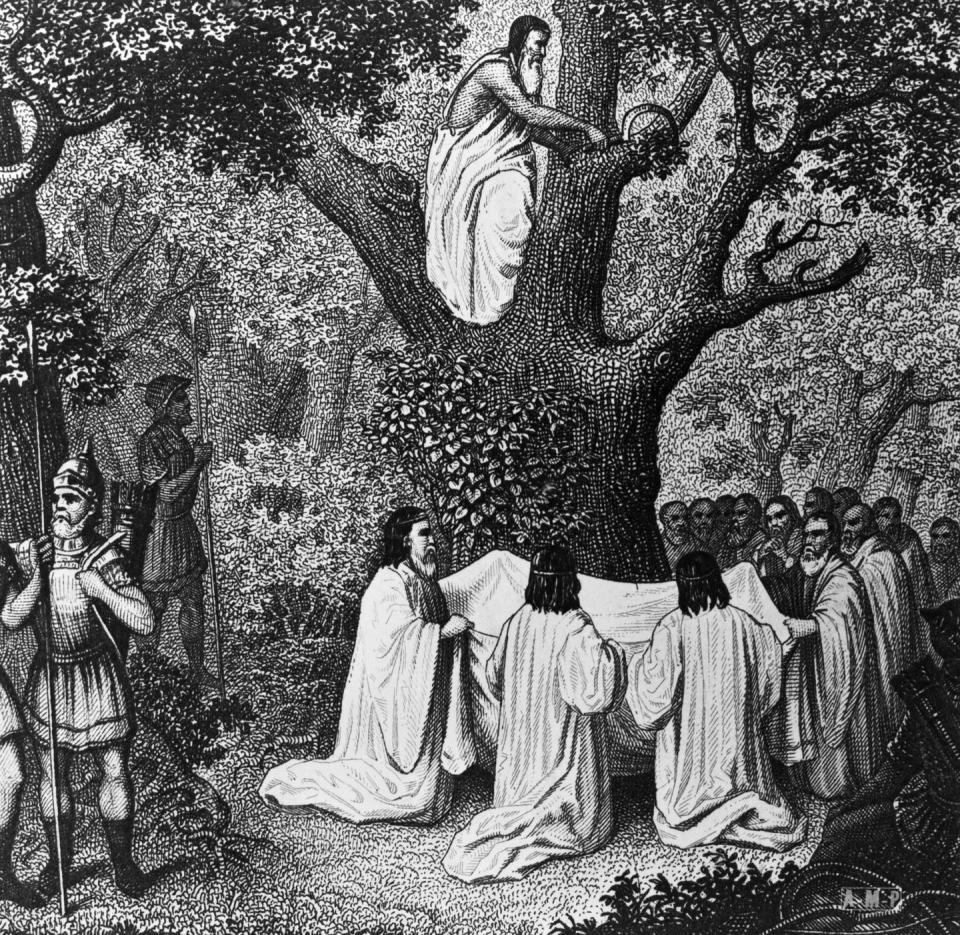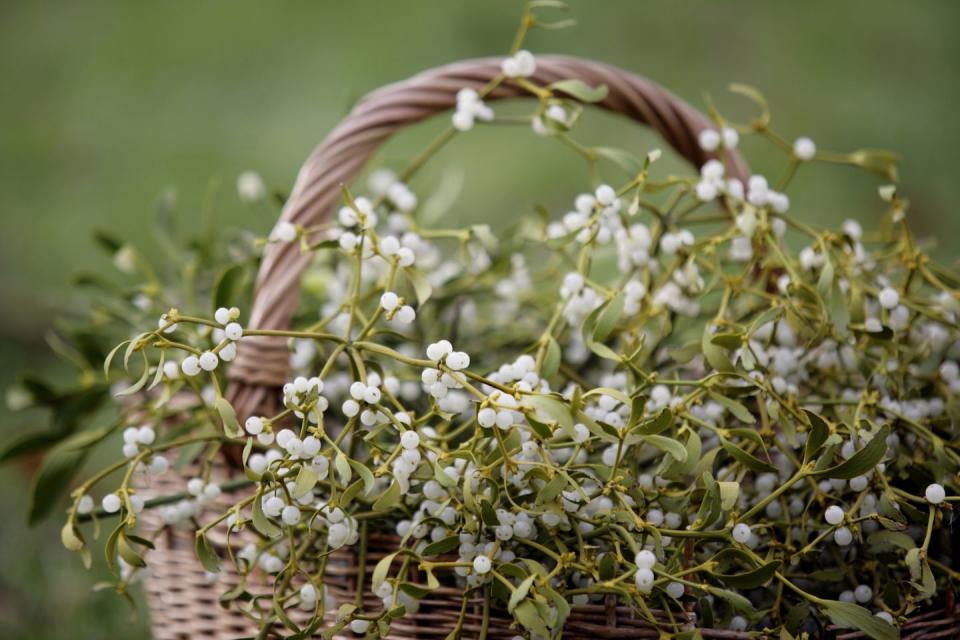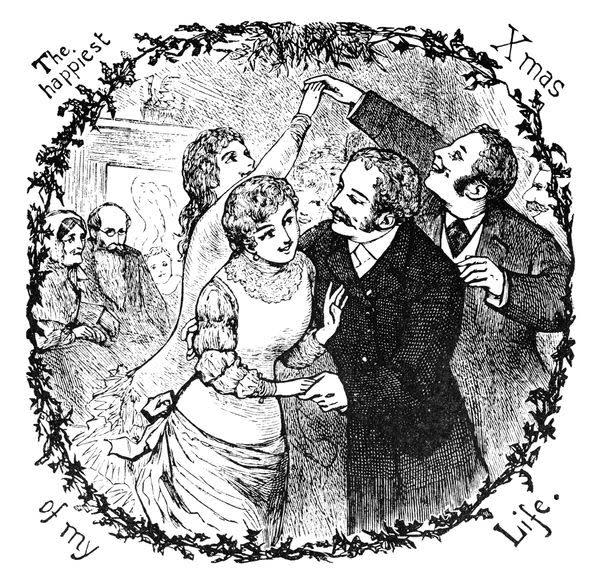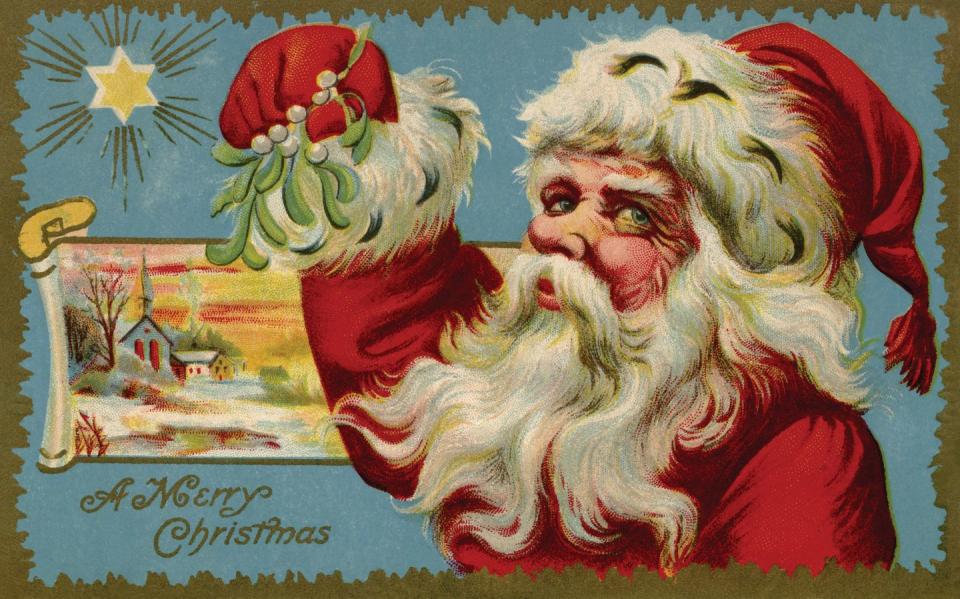The Real Reason We Kiss Under the Mistletoe Will Blow Your Mind

Every year when December rolls around, we carry out countless holiday traditions that pre-date all of us. Christmas trees have been a thing since 16th century Germany. Stockings can be credited back to the days of St. Nicholas. But the whole idea of kissing under the mistletoe started before any of that.
The romantic act that brings together so many couples in Hallmark Christmas movies (and sometimes in real life) is rooted in Norse mythology and the plant itself has had cultural significance for far longer.

In the days of the ancient Druids (around 3rd century bce), mistletoe was highly regarded for its healing properties. It was used to treat many ailments, but the fact that it flourished even in harsh winter weather made people believe it could cure infertility. When mistletoe was found growing in oak trees, they would hold a religious ceremony that involved cutting down the plants and sacrificing two white bulls in the hopes that their god would bless the mistletoe berries. The berries would then be used to create an elixir that was believed to cure all poisons and make any person or animal fertile. The whole kissing thing didn't come about until centuries later (during the Middle Ages), when Scandinavian people shared the stories of the Nordic gods.

We have the goddess Frigg to thank for mistletoe taking on even more of an amorous association. As the myth goes, Odin, the god of wisdom, and his wife Frigg had a son named Baldur who was prophesied to be killed. Frigg met with all living things (plants and animals) urging them not to harm her son. She forgot to reach out to the unassuming and non-threatening mistletoe, which the evil Loki then used to forge the spear that brought down Baldur.
The tears Frigg cried over her son became the berries that can be found on mistletoe and she decried from that day forward that the plant would never be used as a weapon again. It would be a symbol of love instead, and she vowed to bestow a kiss on anyone who walked underneath it. During this period, people would stand under mistletoe trying to reconcile after an argument.
So where does Christmas come into play? Dickens, of course.

It's not entirely clear how or when mistletoe first got pulled into all of the Christmas festivities, but its earliest mention seems to come from the work of Charles Dickens and Washington Irving in the days of Victorian England. Dickens makes mention of kissing under the mistletoe in The Pickwick Papers and Irving's Christmas Eve provided a bit more detail.
People of the time decorated their homes with kissing balls (AKA kissing boughs), which were made from trimmed evergreen, ribbon, ornaments, and (of course) mistletoe. The rule was that if a young woman was caught standing under one of these balls, she couldn't refuse a kiss or else she wouldn't get married the following year. It was also customary that a berry was plucked from the ball with each kiss that occurred underneath it.
Mistletoe may not be as big of a presence in Christmas decor these days (it is poisonous after all), but its rich history makes it far more interesting than a dancing Santa doll.

You Might Also Like